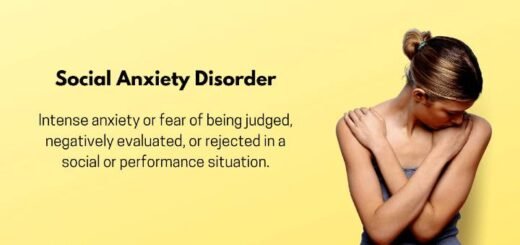Empowering Social Phobia Through Skills Training Techniques
Social skills training plays a crucial role in helping individuals with social phobia build interpersonal confidence and navigate social situations more effectively. In New Zealand, where community interaction is a vital aspect of life, those suffering from social anxiety can benefit significantly from structured programs that focus on social confidence strategies. By equipping individuals with the tools to engage socially, these training sessions empower them to overcome their fears and participate more fully in their communities.
Implementing social confidence strategies not only enhances personal relationships but also fosters professional development and overall well-being. Resources available in New Zealand, such as those found on this website, offer valuable insights and practical approaches to help individuals confront their social fears. Embracing social skills training can lead to transformative experiences for many, enabling them to thrive in both personal and professional realms.
The Importance of Social Skills Training: Building Interpersonal Confidence for Social Phobia Sufferers
Understanding Social Phobia
Social phobia, or social anxiety disorder, is characterized by an intense fear of social situations. It often leads individuals to avoid gatherings, public speaking, or even simple interactions. This avoidance can severely impact one’s quality of life, relationships, and career opportunities. In New Zealand, many people experience the effects of social phobia, and understanding its roots is crucial.
Social phobia often stems from negative past experiences or a predisposition to anxiety. Individuals may feel judged or embarrassed, leading to a cycle of avoidance that reinforces their fears. Recognizing these triggers is the first step toward breaking this cycle. For many, the thought of engaging in social situations becomes overwhelming, which is why social confidence strategies are essential in overcoming these challenges.
Benefits of Social Skills Training
Social skills training provides practical tools to manage social anxiety effectively. It equips individuals with the ability to navigate social situations with greater ease and confidence. One of the primary benefits is the improvement of communication skills. Participants learn to express themselves clearly and assertively, reducing misunderstandings and enhancing relationships.
Moreover, training fosters a supportive environment where individuals can practice social interactions without judgment. This safe space encourages the development of social confidence strategies, such as role-playing scenarios or group discussions. In New Zealand, community groups often facilitate these workshops, offering valuable resources for those struggling with social phobia.
Additionally, social skills training helps individuals develop coping mechanisms for anxiety-provoking situations. Techniques such as deep breathing, visualization, and positive self-talk can be integrated into training sessions, providing participants with immediate tools to manage their anxiety in real-time.
Real-Life Applications of Social Skills Training
The applications of social skills training are vast and varied. For instance, in a professional setting, individuals can practice networking skills, learn how to approach colleagues, and engage in small talk, which are essential components of career advancement.
In New Zealand, many workplaces are increasingly recognizing the importance of mental health. Companies are beginning to implement social skills training as part of their employee wellness programs. This not only helps individuals with social phobia but also contributes to a more inclusive workplace culture.
Moreover, social skills training can benefit personal relationships. By enhancing communication skills, individuals can express their feelings, resolve conflicts, and build deeper connections with friends and family. Activities such as community volunteering or joining local clubs can provide excellent opportunities to practice these skills in a supportive environment.
Strategies to Enhance Social Skills Training
Incorporating specific strategies can significantly enhance the effectiveness of social skills training. First, setting realistic goals is crucial. Participants should identify specific social situations that provoke anxiety and aim to tackle them one at a time. For example, someone might start by initiating a brief conversation with a neighbor before tackling larger gatherings.
Secondly, maintaining a journal can be beneficial. Recording feelings before and after social interactions can help individuals identify patterns and track their progress over time. This practice allows for reflection and self-assessment, which are integral to social confidence strategies.
Another effective strategy is to seek feedback from trusted friends or family members. They can provide constructive criticism and encouragement, helping to reinforce positive behavior. In New Zealand, many community support groups also offer feedback sessions, fostering a sense of belonging and support.
Overcoming Barriers to Social Skills Training
Despite the benefits, there can be barriers to accessing social skills training. One major challenge is the stigma surrounding mental health issues, which may prevent individuals from seeking help. To combat this, it is essential to promote awareness of social phobia and the resources available, such as those found at socialphobia.org.nz.
Another barrier can be financial constraints. Many individuals may be unaware that numerous community organizations in New Zealand offer free or low-cost workshops and training sessions. Researching local resources can reveal valuable opportunities for those looking to enhance their social skills without incurring significant costs.
Finally, time constraints can also pose a challenge. Individuals juggling work, family, and personal commitments may find it difficult to dedicate time to training. However, many programs offer flexible scheduling or online options, making it easier for participants to engage at their convenience.
The Role of Support Networks
Support networks play a critical role in the success of social skills training. Engaging with others who share similar experiences can provide motivation and encouragement. In New Zealand, support groups often facilitate discussions and activities that reinforce social confidence strategies.
Family and friends also play a crucial role in this journey. Educating them about social phobia can foster understanding and create a supportive home environment. Encouraging loved ones to participate in training sessions can also help build a more robust support system, making social interactions feel less daunting.
Furthermore, online forums and social media groups can provide additional support. Connecting with others facing similar challenges can lead to shared experiences and tips, enhancing the learning process. Many individuals find solace in knowing they are not alone in their struggles with social phobia.
Long-Term Outcomes of Social Skills Training
The long-term outcomes of social skills training can be transformative. Individuals often report increased confidence in social situations, leading to improved relationships and enhanced quality of life. The skills learned during training can be applied across various contexts, from personal to professional environments.
Moreover, individuals may find that as they become more comfortable in social settings, their overall anxiety levels decrease. This reduction in anxiety can open up opportunities that were previously avoided, such as pursuing new hobbies or career advancements.
In New Zealand, the positive impact of social skills training is becoming increasingly recognized. As more individuals embrace these strategies, there is a growing sense of community and understanding surrounding social phobia. Over time, this cultural shift can lead to a more accepting and supportive environment for everyone, regardless of their social challenges.
FAQs
What are social skills training programs?
Social skills training programs are structured interventions designed to help individuals develop and enhance their interpersonal skills. These programs often include techniques and exercises that focus on communication, assertiveness, and relationship-building, making them particularly beneficial for those suffering from social phobia.
How can social confidence strategies help individuals with social phobia?
Social confidence strategies provide practical tools and techniques to help individuals manage their anxiety in social situations. By practicing these strategies, individuals can build their self-esteem, improve their communication skills, and ultimately feel more comfortable engaging with others.
What are some common social confidence strategies?
Common social confidence strategies include role-playing scenarios, mindfulness practices, exposure therapy, and cognitive restructuring. These techniques help individuals challenge negative thoughts, rehearse social interactions, and gradually expose themselves to social situations in a supportive environment.
Is social skills training suitable for everyone?
While social skills training can be beneficial for many, it is particularly suited for those who experience difficulties in social interactions due to anxiety or social phobia. It is important for individuals to assess their unique needs and, if necessary, consult a mental health professional to determine if social skills training is right for them.
How long does it take to see improvements from social skills training?
The time it takes to see improvements can vary significantly from person to person. Some individuals may notice changes in their confidence and social interactions after just a few sessions, while others may require more extensive training and practice to achieve their desired outcomes.
Can social confidence strategies be practiced alone?
While some social confidence strategies can be practiced independently, such as journaling or self-reflection, many techniques are more effective when practiced in a group setting or with a partner. Engaging with others provides valuable feedback and helps reinforce the skills learned during training.
How do I find a social skills training program?
Finding a social skills training program can be done through various channels, including local mental health clinics, community centers, and online platforms. Additionally, seeking recommendations from mental health professionals or support groups can help you identify programs that align with your needs and goals.
References
- The New Zealand Social Phobia Society – A resource dedicated to providing information and support for individuals suffering from social phobia, emphasizing the importance of social skills training.
- Social Anxiety and Social Skills Training – An article on Psychology Today discussing how social skills training can help individuals with social anxiety improve their interpersonal interactions.
- Social Skills Training for Anxiety – A comprehensive overview on Verywell Mind that explores the benefits of social skills training for those dealing with anxiety disorders, including social phobia.
- The Efficacy of Social Skills Training for Social Anxiety Disorder – A research article from the National Institutes of Health that examines the effectiveness of social skills training in treating social anxiety disorder.
- What is Social Anxiety Disorder? – The Anxiety and Depression Association of America provides insights into social anxiety and highlights the role of social skills training in recovery.




